Exercise increases insulin sensitivity, and that’s one of the best reasons for doing regular exercise. But carbohydrates inhibit insulin sensitivity from exercise, so if you eat carbohydrates after exercise, you could be sabotaging your exercise and not getting all of its benefits.
Insulin sensitivity
Insulin sensitivity is critical for health. Most if not all of the diseases of civilization – heart disease, cancer, diabetes, Alzheimer’s, and the rest – are accompanied by insulin resistance, that is, a decrease in insulin sensitivity. Increasing insulin sensitivity could help prevent most of these diseases.
The chart below shows what happens when a group of men and women have their insulin sensitivity/resistance measured and are followed for approximately 5 years. They were grouped into tertiles (thirds), equal-numbered groups according to insulin resistance. The group with the greatest insulin sensitivity (lowest resistance) had zero cases of heart disease, stroke, cancer, hypertension, or type 2 diabetes. The majority of cases were in the group with the highest insulin resistance. (Details here.)

Maintaining good insulin sensitivity is that important – your life could depend on it.
Exercise is a good way to improve insulin sensitivity. By draining glycogen stores from muscles and liver, exercise increases GLUT4 receptors on muscle and liver cells, and insulin sensitivity increases.
But eating carbohydrates may sabotage the ability of exercise to increase insulin sensitivity.
The effect of carbohydrates after exercise
Exercise uses a combination of the two kinds of stored energy in the body: carbohydrates, and fats. Generally, the higher the exercise intensity, the greater the amount of glycogen, the storage form of carbohydrate, that the body uses. Low intensity exercise uses a greater amount of fat. The ratio of carbohydrate to fat burned can be determined using the respiratory quotient, a test done in the physiology laboratory.
Even a relatively lean person has enough calories stored as body fat to last for weeks or perhaps even months without eating. Using myself as an example, at 160 pounds body weight and 12% body fat, I have 19 pounds of body fat. At 3,500 calories per pound of body fat, and at a 2,000 calorie daily requirement, my fat stores might last over a month without eating.
In contrast, the average person stores only about 1500 to 2000 calories in the form of glycogen. The liver contains about 100 grams, and muscles 400 grams; at 4.5 calories a gram,
The ability of exercise to drain glycogen stores is crucial to its ability to improve insulin action. If you immediately replace the lost glycogen by eating a high-carbohydrate meal, you may lose the insulin-sensitizing benefit of exercise.
Post-Exercise Carbohydrate-Energy Replacement Attenuates Insulin Sensitivity and Glucose Tolerance the Following Morning in Healthy Adults
Fourteen healthy adults exercised for 90 minutes at 70% VO2max. They then drank either a placebo, or a drink with about 220 grams of carbohydrate in the form of maltodextrin. The study had a crossover design, so all participants did both interventions. They then went through a glucose tolerance test the next day, and glucose and insulin were measured. Results below:
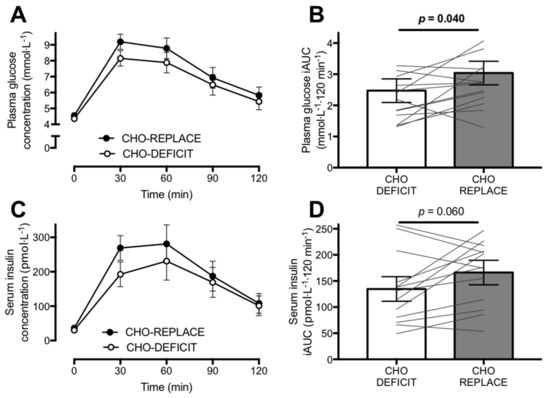
Both glucose and insulin were higher in the group that replenished glycogen stores with maltodextrin.
Furthermore, during the glucose tolerance test, those who had taken the carbohydrate burned less fat.
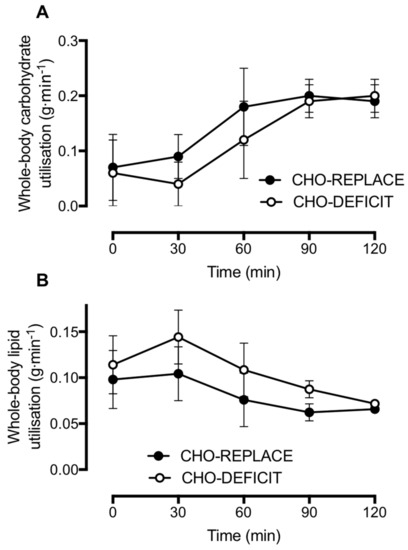
The present study demonstrates that replacement of the carbohydrate utilized during a single bout of exercise impairs both insulin sensitivity and glucose tolerance by ~20–25% the following morning, relative to when the exercise-induced carbohydrate deficit is maintained. Importantly, these changes were most clearly apparent in the postprandial state. Furthermore, postprandial fat oxidation was suppressed by post-exercise replacement of carbohydrate use.Previous work has demonstrated that, whilst exercise is a potent method of stimulating muscle glucose uptake and insulin sensitivity, the carbohydrate deficit induced by exercise is key factor that mediates these responses.
Conclusion
The insulin-sensitizing effect of exercise depends in part on depleting glycogen stores. Replacing glycogen with a large amount of carbohydrate, as is the practice for many, both athletes and non-athletes, impairs the effect of exercise.
Don’t self-sabotage your exercise regimen by eating lots of carbs.
Since the higher the exercise intensity, the more glycogen is burned, high-intensity exercise is a good way to improve insulin sensitivity.
PS: For more on high-intensity training, see my book, Muscle Up.

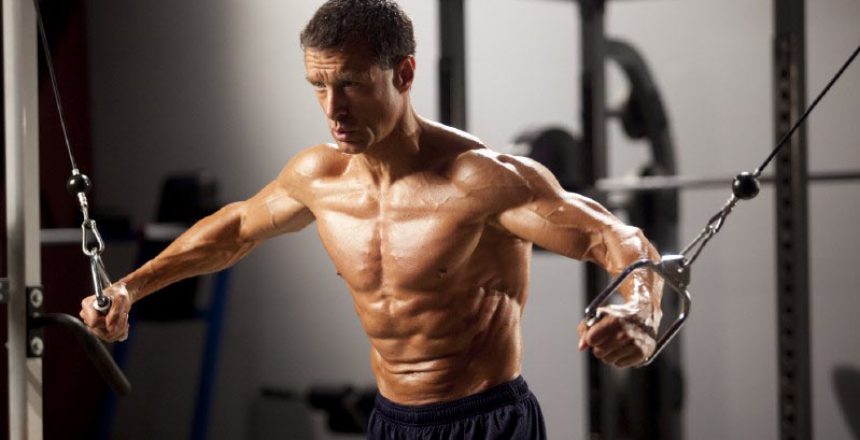




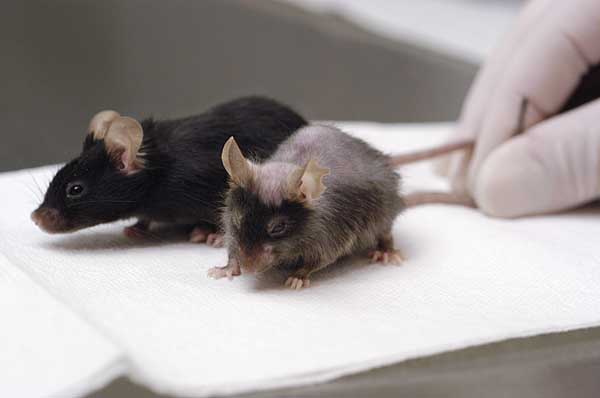
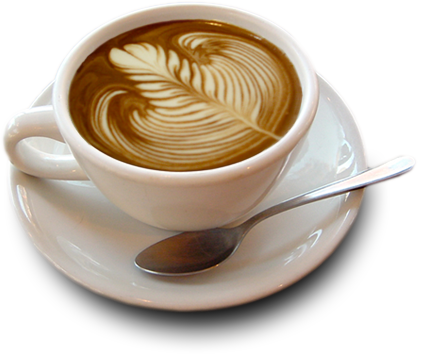







28 Comments
I find the design of this study very strange…220g of sugar?! That’s like drinking 2 liters of coke. Who in his right mind would expect that a person would be better off consuming this amount of sugar (moreover in liquid form) compared to a person who didn’t consume it.
Agreed it’s a lot of carbs, however it’s less than average daily US consumption, and “a 15% Maltodextrin solution was ingested to precisely replace carbohydrate oxidized during the preceding run.” So, not even excess carbs.
I think you greatly underestimate how much sugar most people eat – mostly because doing so powerfully activates the reward center in the brain – not only through sugary taste – it seems to be exactly the fast increase in blood-sugar levels that causes the most pleasure – the more quickly absorbed a carbohydrate is into the blood, the stronger the pleasure, and with that, the addiction potential. Even differences of a few seconds from gulping down to rise of blood-sugar levels seem to make a difference; therefore, the most quickly dissolving carbs-containing solid foods are the most addictive; only topped by liquid formulations that almost immediately rise blood-sugar levels (cola, fruit juices etc.).
For example a smallish, very basic pizza margarita already has around 100g of carbs;
add a cola and a chocolate bar and a piece of fruit (banana) and you have easily eaten 200+g of carbs with a meal most people would describe of “modest”.
It’s terribly easy to lose self-control even if you know about all the basics.
I am a guilty example:
After eating controlled and well for weeks I recently got a binge-eating spell and rationalized it by eating a kind of “flavored” cottage-cheese. I ended up eating 4 kg in two hours – BUT that, and I am ashamed to confess, included a whopping 600g of sucrose in two hours, because 100g of the product contained 15g of added sugar.
That’s the stuff:
https://fddb.info/static/db/302/Q9KW6L15RG5H989NSJ0QUUB4_999x999.jpg
So harmless looking , so divinely tasting, such a ridiculous sugar bomb.
Never again. If I have future binge eating attacks I am prepared with cans of kidney beans which I can prepare in few minutes in the microwave and spice up with tomato concentrate and vinegar into a tasty meal, one with a low glycemic load, to keep things under control even while I “cheat”.
That was going to be my comment as well. 220 cals of carbs, wow, you have my attention, but 220 grams? I think this is one for the ‘you can’t out run a bad diet’ file… it’s value is sharing with folks new to LCHF and refuting mainstream dietary advice; maybe not so much as a warning to those already on the Mangan Train.
I just saw this article, and thought you might find it interesting. I wonder if it could tie in to excess iron somehow. Sorry, was not sure where else to put this. https://www.nytimes.com/2018/01/29/health/heart-disease-mutations-stem-cells.html
I appreciate it, Steve, no worries about where to leave it. You and other commenters can feel free to ;eave links to studies or articles of interest if you think I haven’t seen them – and in many cases I haven’t.
So all the info from the science presented in the blog over the years comes down to “avoid carbs like the plague”.
Reversing the question:
Does anybody know an example when eating carbs would be not self-sabotaging, rather actually advantageous?
To partially answer my question myself:
Stress (perception of not being in control, increased helplessness, having lost in a social competition, experiencing personal failures etc.) changes taste perception.
https://www.ncbi.nlm.nih.gov/pmc/articles/PMC3240721/
https://www.anxiety.org/the-effects-of-stress-on-our-sense-of-taste
It seems a reaction to stress/disappointments/frustrations leads to an increased desire for energy/food intake;
especially in terms of sweet taste.
It seems further than such energy/sweets uptake can attenuate the negative effects of stress (higher cortisol levels) – in the short term.
(Consider that the taste-pleasure connection in terms of sweet taste is inborn – babies become happy/stop crying when they register sweet taste.).
(Babies and children are especially greedy for sweet tastes – I read that their immune system/liver detoxification mechanisms are not yet as strong as those of adults, and a sweet taste is indicating safe, nontoxic food – we’re, at least when young, evolutionary programmed to prefer sweet taste over any other;
young people are also, it seems for the same reason, especially aversive towards bitter tastes, like coffee or dark chocolate – bitter, outside of modern foodstuffs, in nature more often than not indicates potentially poisonous food.)
Personal experience and observing others also hints to the fact of a stress/failure – greediness-for-sweets connection. Are we falling back in a child-like state when we desire to binge on sweets? Are we, in some way, re-experiencing a “safe childhood” state when we ingest sweets? Would that signal to our subconsciousness “you are safe and there is plenty of energy” – to calm down a stress response?
If it works this way, then chronic stress would motivate a chronic desire for sweets, which, when eaten for an extended period of time, would only make stress worse (obesity -> frustration -> stress).
Another aspect:
In nature, there is often a typical seasonal availability of “sweets”, as in autumn suddenly the availability of fruit peaks (or even kind of explodes) – and this is exactly the preparatory time for winter – the time to get fat quickly, to make it through winter (thermal insulation of fat + energy reserve). Most of that is fructose – an especially fattening type of sugar compared with others due to metabolic pathways – it causes extra strong visceral fat increases).
So, carbs could be useful for coping with stress (over the short time);
and if you are, say, a bear, who has to survive winter out in the cold, they could help survival.
Another idea, without serious scientific backing, as far as I know:
A speculative principle termed “Hedonics”:
We cannot control our minds; all we can do is move our attention around – this is the only cognitive freedom we have (we cannot “actively” remember or learn something – we either remember sth. – then it “comes available” automatically – or not; we cannot force ourselves to remember; and we cannot learn as we cannot teach – we can only get shown sth. or show it to others – the “understanding”, the insight, depends entirely on sub-conscious processes we cannot directly influence – one either “gets it” – or not).
Creativity/insights/inspirations/getting suddenly a good idea – is not controllable through our will – such things suddenly “arrive” in our minds, are “shown” to us as result of the work of inaccessible subconscious processes.
“Hedonics” is the hypothesis that we can increase the chances of getting such good ideas by Pavlovian (self-) conditioning – immediately when we receive such we should ingest an intensely sweet lozenge (be prepared: carry such always with you) to trigger the reward center of the brain – in the hope to condition the unconscious cognitive machinery of our brain to get such good ideas more often …
My preliminary cost/benefit analysis indicates you may try this;
Good ideas are too valuable to miss out on.
“So all the info from the science presented in the blog over the years comes down to “avoid carbs like the plague”.”
Well, I like to think there’s a little more to it 🙂
>Well, I like to think there’s a little more to it
Of course.
But if one would want to condense it all into a single sentence it seems it would be something like that, in terms of carbs.
Okay, but the burned muscle glycogen needs to be restrained to sustain intense future physical exertion. Isn’t that right?
Fat will solve, but glycogen is better in high intensity, so the question I did not understand
Glycogen is needed for high-intensity exercise, but that doesn’t mean you need a full tank of glycogen. If you lifted weights for an hour, maybe you’d burn 500 calories, half of that glycogen. If you’re an elite athlete, you might want glycogen stores higher, but most of us aren’t.
I understand. I do cycling, a lot of intense, but then it should look like the example you quoted. What symptoms causes the depletion of muscular glycogen in an intense activity? dizziness, weakness…?
There wouldn’t necessarily be any symptoms, but if you weren’t adapted to burning fat, you might feel fatigued and, when exercising, performance could be lower. After fat adaption though you probably wouldn’t notice anything.
I understand. I think I’m adapted. For the replacement of muscular glycogen, fruits stemming from fruits, type apple, melon, watermelon, because they are metabolized directly in the liver, do not do this function, but rather only glycogen hepatico? Can you tell me?
Fruit would certainly help replace glycogen. If you recall from the interview with Shawn Baker, he eats nothing but meat and exercises at high intensity daily. presumably he is replacing glycogen only through gluconeogenesis.
Ok. Entendi. Thank
Hi P.D.
May I ask how many grams of carbohydrates is your daily intake?
And what % of calories are they on the total amount of calories?
Thank you.
On most days, my intake of concentrated carbohydrates is zero, in other words, what I consume comes from non-starchy, fibrous vegetables like broccoli or salad. On 1 or 2 days a week, I might eat 2 or 3 small corn tortillas, at 10 grams carbohydrate each, so figure <50 grams.
Just out of curiosity: You do not drink milk or eat fruits at all? No yogurts either?
No nuts?
Those are my main carbohydrate sources 🙂
I usually have 50-100 grams daily
Hi Paloma – I don’t drink milk but I do consume dairy: cheese, yogurt, butter, cream. I rarely eat nuts. I do eat a bit of dark chocolate.
This is way less than Paul Jaminet recommends in the Perfect Health Diet or am i wrong?
Also you do intense workouts.
Yes on both counts. I believe the lower the carb intake the better, and you don’t need carbs to do intense workouts.
Have someone go ride a bike vs someone doing a heavy farmers walk 200-300lbs per hand for 100ft walking distance? I think the farmerswalk person will burn his glycogen fast?
“”so if you eat carbohydrates after exercise, you could be sabotaging your exercise and not getting all of its benefits.””
PD, I thought it was accepted conventional wisdom that in order to best build muscle mass that it is a good thing to eat at least 75 grams of carbs after working out. The theory as I understand it is this…. You eat the carbs to create an insulin event. The insulin is an anabolic agent and is most effective directly after a hard workout. Thus you would WANT to have a lot of carbs after the workout.
How should I reconcile your advice with the conventional wisdom as I have reported here?
Glad you asked. Protein also raises insulin and enough so to increase muscle protein synthesis. Adding carbs raises insulin further but beyond a threshold, doesn’t increase muscle growth. So if you eat protein or especially ingest BCAAs (as in whey) you raise insulin sufficiently to increase muscle growth. The real benefits of carbohydrates in terms of muscle seems to be in raising insulin at other times and thus stopping breakdown of muscle.
Thanks for the reply. I didn’t realize that protein would function as well as carbs in that respect.